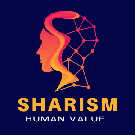Sharism and Education
Integrating education into the concept of sharism emphasizes the collaborative and open sharing of knowledge, skills, and learning experiences. Here's how education aligns with sharism principles:
Open Access to Educational Resources:
Sharism promotes the open sharing of educational resources. Online platforms, open educational resources (OER), and collaborative learning communities provide access to a wealth of educational materials, breaking down barriers to learning.
Collaborative Learning Environments:
Sharism in education fosters collaborative learning environments. Students and educators engage in shared learning experiences, collaborative projects, and knowledge exchange, promoting a sense of community within educational institutions.
Global Knowledge Sharing:
Education within a sharism framework transcends borders. Students and educators participate in global knowledge sharing, contributing to a diverse and interconnected pool of ideas and perspectives.
Open Source Learning Platforms:
Sharism encourages the development of open source learning platforms. These platforms facilitate the collaborative creation of educational content, enabling educators to share curriculum materials, lesson plans, and teaching resources.
Peer-to-Peer Tutoring and Mentoring:
Students within a sharism ecosystem actively participate in peer-to-peer tutoring and mentoring. This collaborative approach to education allows individuals to share their expertise and receive assistance, promoting a culture of mutual support and knowledge exchange.
Collaborative Research Initiatives:
In higher education, sharism manifests through collaborative research initiatives. Researchers from different institutions and disciplines collaborate on projects, contributing to the advancement of knowledge and promoting a culture of shared discoveries.
Technology for Inclusive Education:
Sharism in education leverages technology to create inclusive learning environments. Digital tools, online courses, and collaborative platforms ensure that educational opportunities are accessible to a broader audience, regardless of geographical location.
Open Educational Events:
Sharism encourages the organization of open educational events, such as workshops, webinars, and conferences. These events provide platforms for educators and learners to share their expertise, experiences, and insights with a wider audience.
Educational Crowdsourcing:
The principles of sharism extend to educational crowdsourcing, where educators and students collaborate on creating educational content, solving problems, and addressing challenges in the learning process.
Community Engagement in Education:
Educational institutions within a sharism ecosystem actively engage with the broader community. This involves partnerships with local organizations, sharing educational resources, and collaborating on initiatives that contribute to the overall well-being of the community.
Global Experiential Learning:
Sharism in education supports global experiential learning opportunities. Students are encouraged to engage in study abroad programs, internships, and collaborative projects that provide hands-on experiences and promote cross-cultural understanding.
By integrating education into sharism, the learning process becomes a collaborative and inclusive endeavor. The shared pursuit of knowledge and skills contributes to the development of a global community that values continuous learning, mutual support, and the democratization of education.
